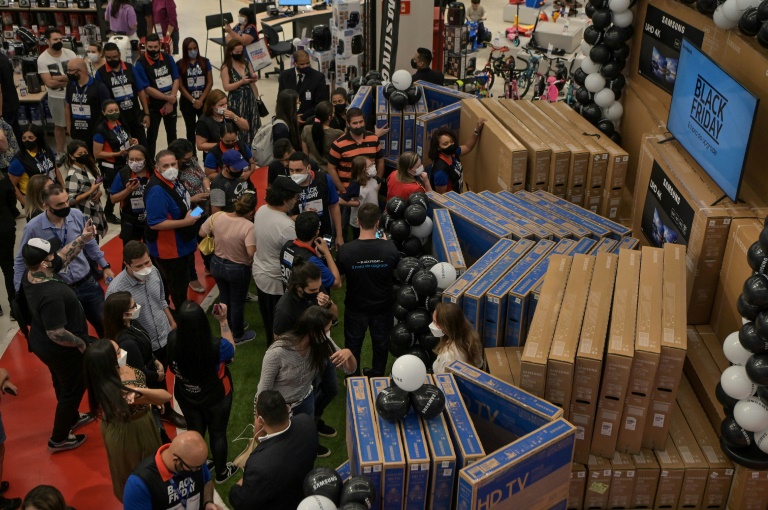Brazil’s economy, the largest in Latin America, slid into recession in the third quarter of 2021 as agricultural production dropped, official data showed Thursday.
GDP declined 0.1 percent for the second straight quarterly fall, the government statistics agency IBGE said.
The second-quarter drop was revised to a larger 0.4 percent from an initial estimate of 0.1 percent compared to the previous three months.
Brazil’s second-quarter GDP slowdown ended the recovery that started late 2020 after the collapse caused by the Covid-19 pandemic.
In comparison to the same period a year ago, the economy grew four percent in the third quarter, said the IBGE.
Agricultural production fell 8.0 percent, while manufacturing was flat and the services sector grew 1.1 percent.
Brazil’s services industry was boosted by an improvement in the health situation in a country hard hit by the global pandemic.
After its immunization campaign got off to a rocky start, the South American country has now managed to fully vaccinate 60 percent of its population against coronavirus, although there are fears the emergence of the new Omicron variant — with three cases confirmed in Brazil — could at least partly undo progress.
– Drought, inflation –
The third-quarter drop in farming production was partly a function of the end of the soybean harvest, which happens mainly in the first quarter, but also drops in coffee (-22.4 percent), cotton (-17.5 percent) and maize (-16 percent) output compared to 2020.
“The drop is attributable to the drought, the water crisis, because there were crop losses and grain production declined,” according to Alex Agostini of consulting firm Austin Rating.
On top of the agriculture loss, adding to the growth slowdown was high inflation, rising interest rates and high unemployment, said Fabio Astrauskas, an economist with the firm Siegen.
Annual inflation hit a higher-than-expected 10.67 percent in October, and unemployment was 12.6 percent for the period July to September.
The latest market expectation is for growth of 4.78 percent this year, according to a Central Bank survey — down from a 5.3-percent forecast made in July.
According to S&P Global Ratings, Brazil’s economy recovered faster than expected following a 4.1 percent contraction in 2020, and should achieve 4.8 percent in 2021.
But the medium-term growth outlook was “poor”.
“The combination of recent monetary tightening by the central bank, upcoming national elections, and investor concerns about long-term fiscal policy will constrain consumption and investment in 2022, resulting in GDP growth below one percent,” it said.
S&P forecast an annual growth average of 1.7 percent during 2022-2024.
Far-right President Jair Bolsonaro is to seek re-election in 2022, but is trailing behind leftist former leader Luiz Inacio Lula da Silva in the opinion polls.











